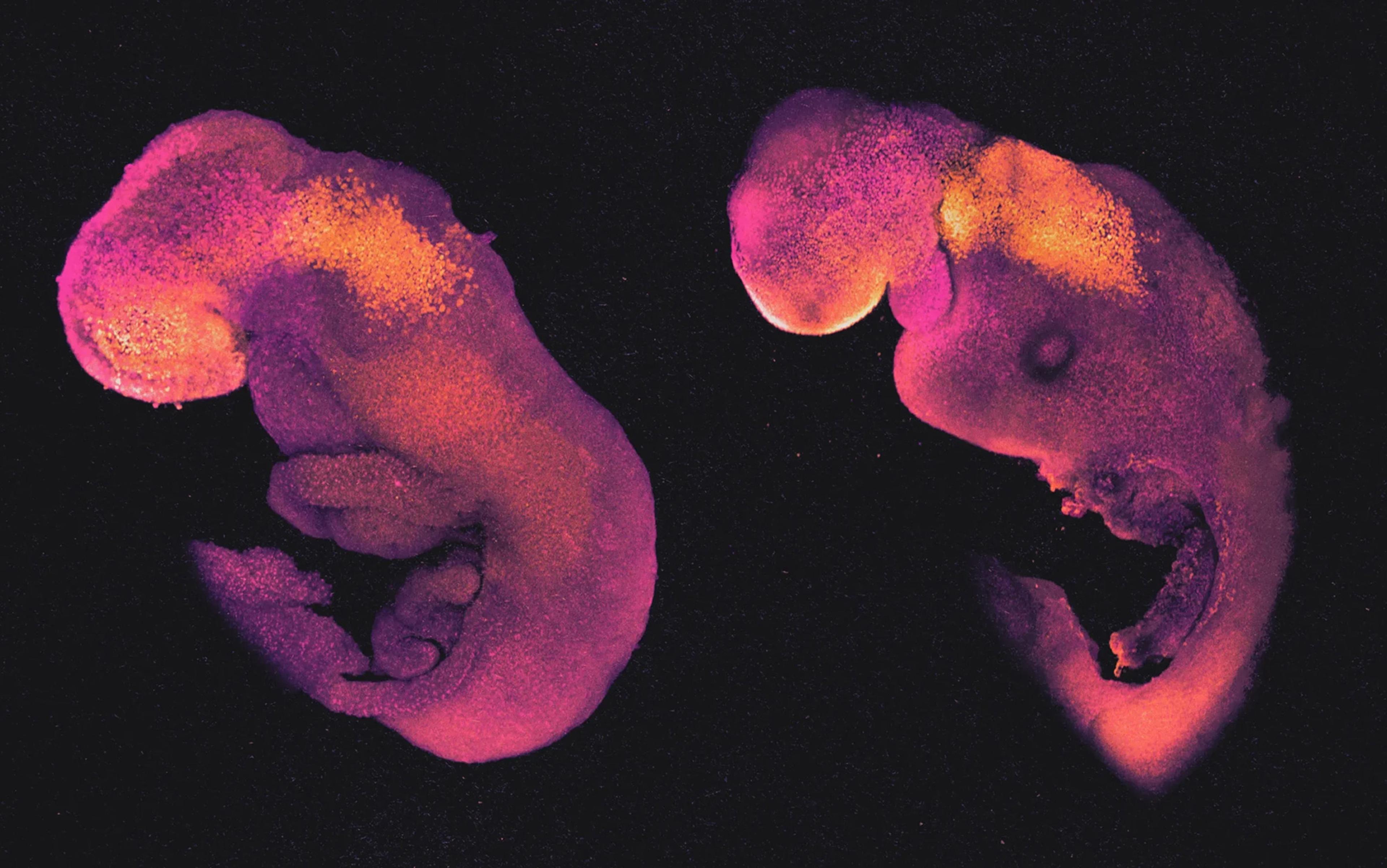Everywhere you turn, there is talk of lived experience. But there is little consensus about what the phrase ‘lived experience’ means, where it came from, and whether it has any value. Although long used by academics, it has become ubiquitous, leaping out of the ivory tower and showing up in activism, government, consulting, as well as popular culture. The Lived Experience Leaders Movement explains that those who have lived experiences have ‘[d]irect, first-hand experience, past or present, of a social issue(s) and/or injustice(s)’. A recent brief from the US Department of Health and Human Services suggests that those who have lived experience have ‘valuable and unique expertise’ that should be consulted in policy work, since engaging those with ‘knowledge based on [their] perspective, personal identities, and history’ can ‘help break down power dynamics’ and advance equity. A search of Twitter reveals a constant stream of use, from assertions like ‘Your research doesn’t override my lived experience,’ to ‘I’m pretty sure you’re not allowed to question someone’s lived experience.’
A recurring theme is a connection between lived experience and identity. A recent nominee for the US Secretary of Labor, Julie Su, is lauded as someone who will ‘bring her lived experience as a daughter of immigrants, a woman of color, and an Asian American to the role’. The Human Rights Campaign asserts that ‘[l]aws and legislation must reflect the lived experiences of LGBTQ people’. An editorial in Nature Mental Health notes that incorporation of ‘people with lived experience’ has ‘taken on the status of a movement’ in the field.
Carried a step further, the notion of lived experience is bound up with what is often called identity politics, as when one claims to be speaking from the standpoint of an identity group – ‘in my lived experience as a…’ or, simply, ‘speaking as a…’ Here, lived experience is often invoked to establish authority and prompt deference from others since, purportedly, only members of a shared identity know what it’s like to have certain kinds of experience or to be a member of that group. Outsiders sense that they shouldn’t criticise what is said because, grounded in lived experience, ‘people’s spoken truths are, in and of themselves, truths.’ Criticism of lived experience might be taken to invalidate or dehumanise others or make them feel unsafe.
So, what is lived experience? Where did it come from? And what does it have to do with identity politics?
‘Lived experience’ is a translation of one of the two German words for experience: Erlebnis. The other German word for experience, Erfahrung, is the older of the two. It has as its root fahren, ‘to journey’. When one calls someone ‘experienced’, it is this kind of experience that is being appealed to. Erfahrung is experience that is cumulative – as one who has long journeyed a path knows the road – and is associated with practice, skill and know-how. Erfahrung can sometimes be translated as ‘learning’, and suggests experience that might be gathered in the form of practical wisdom and passed on as tradition.
Erlebnis, by contrast, has Leben or ‘life’ as its root. Rather than experience that accumulates over time or is held in the form of tradition, Erlebnis connotes experience that is living and immediate. It is the province of the pre-reflective and innocent, as opposed to the refined and distilled. Erlebnis implies experience that is new, fresh and sometimes disruptive – what doesn’t easily fit into the public, cultural patterns associated with Erfahrung.
In the late 19th and early 20th centuries, German philosophers developed and exploited the contrast between these two kinds of experience. This led philosophers and translators in other languages – most notably, for our purposes, English and French – to add the qualifiers ‘lived’ or ‘vécue’ to signify when they were invoking Erlebnis as opposed to Erfahrung. So, while the multifaceted English word ‘experience’ can be used to translate both Erlebnis and Erfahrung, when someone wants to refer to the distinctive form of experience picked out by Erlebnis, they often use ‘lived experience’ to do so.
The external world became the realm of ‘facts’, while meaning, value and feeling were increasingly thought of as subjective
According to Richard E Palmer in his book Hermeneutics (1969), Erlebnis first appeared in the plural form Erlebnisse in the work of Johann Wolfgang von Goethe, while Hans-Georg Gadamer suggests in Truth and Method (1960) that the first singular use can be found in one of G W F Hegel’s letters. But the word really didn’t come into common usage until the 1870s. It was then that the German philosopher Wilhelm Dilthey brought Erlebnis into the mainstream, when he used it in his 1870 biography of Friedrich Schleiermacher and in an 1877 essay on Goethe, a version of which was later included in his highly regarded work Das Erlebnis und die Dichtung (‘Poetry and Lived Experience’; 1906).
While himself a staunch empiricist, Dilthey was part of a Romantic movement reacting to earlier empiricists, positivists and Kantians, whom he believed relied on an unduly narrow conception of experience. Since these philosophers were primarily concerned to provide an epistemological foundation for the budding natural sciences, they focused on the cognitive aspects of experience – that is, how experience can be used as the basis for scientific knowledge of the kind produced by natural philosophers such as Isaac Newton.
At the risk of oversimplification, these thinkers focused primarily on sensation – the ‘objective’ world encountered by the senses and, in particular, those aspects of sensory experience that could, through abstraction, be quantified, measured and shared. Other features of experience, such as meaning, significance, value, purpose, feeling and the like, were ignored and relegated to the ‘subjective’ realm of ‘inner experience’. This epistemology created a split between subject and object, mind and world, fact and value. The external or objective world became the realm of ‘facts’, while meaning, significance, value, purpose and feeling were increasingly thought of as subjective.
While a Romantic, Dilthey was also insistent upon being more empirical than earlier empiricists. He saw his task as getting back behind the subject/object, mind/world, fact/value split to embodied, full-blooded, living experience. In a line from his work Introduction to the Human Sciences (1883), Dilthey writes: ‘No real blood flows in the veins of the knowing subject constructed by Locke, Hume, and Kant, but rather the diluted extract of reason as a mere activity of thought.’ Dilthey believed we have to return to conscious lived experience, not because the content of lived experience is indubitable but because we have no alternative. The only way we can know anything is through conscious experience.
Dilthey maintained that the subject/object split led us to the false belief that the world of the natural sciences was the true or fundamental reality. By contrast, Dilthey argued, since our original access to the world is through conscious experience, so-called objective reality is only the husk that remains by exsanguinating lived experience. This means that the world of the natural sciences is not fundamental, but necessarily derivative. Dilthey designed the concept of Erlebnis (lived experience) to reflect the fact that, in our original experience, we know the world as a meaningful, coherent whole – a composite of inner and outer, subjective and objective, facts and values. One can analyse the original whole of lived experience into subjective and objective elements, but this analysis is only possible because subject and object are originally bound up together in the fundamental reality of lived experience.
Contemporary usage of lived experience still bears the mark of Dilthey’s original formulations (a point I’ve developed in more detail in other writings). For Dilthey, lived experience should first be taken to signify the view from the inside, the ‘what it’s like’ to be a human being. There is a stark difference between learning about the physics of colour and being awestruck by the prismatic beauty of a sunset; one thing to know about the biochemistry involved in love and another to experience the extraordinary, ineffable thrill of actually falling in love.
Because it is the ‘view from the inside’, lived experience belongs to the individual and is emphatically personal as opposed to scientific experience, which Martin Jay, in his superb book Songs of Experience (2005), says belongs to the ‘imagined collective subject, at once impersonal and immortal’. As such, lived experience picks out the first-person perspective of everyday experience as opposed to the third-person detached and dispassionate experience of the sciences. ‘Lived experience’ is used to indicate pre-reflective experience as we ordinarily enjoy it – experience that is lived through, not looked at.
Lived experience is an embodied, not a purely cerebral, affair. As such, it involves thought, feelings and activity. When Dilthey talks about lived experience, one should think about the back-and-forth relationship of an organism with its environment in an interactive, embodied way. We interact with our environment because we have concerns and purposes. This means that, in lived experience, we respond affectively and volitionally to a world that shows up as immediately meaningful and significant. Meaning and value are not projections of a free-floating mind, but we find them present as we interact with our environment. If I am building a fence, the hammer and nails will show up as valuable tools to accomplish this goal, while the rocky ground will show up as an obstacle that elicits a feeling of frustration, and causes me to look for a sturdier shovel. Lived experience should be thought of as encompassing the subject and the object in an intelligible, coherent whole that involves understanding, feeling and action.
A person who has read Romeo and Juliet will construe his experiences of love differently than someone who has not
The fact that the world shows up to us in relationship to our concerns and purposes highlights the fact that lived experience is fundamentally interpretive, and interpretive at multiple levels. In addition to our purposes shaping our experiences, so does our personal history. Lived experience is inextricably temporal – the past resonates in the present and points us to the future. For example, my past experiences of joy in going to church, for example, will enter into and shape my present experience of church itself, as well as my desires going forward. Someone who has had negative experiences of church in the past will find their present experiences shaped in a different way. This is part of why we sometimes say that two people who have experienced the same thing nevertheless have very different experiences.
The culture into which we are born also shapes our experiences. Dilthey was so convinced of the indissolubility of the subjective and objective in lived experience that he thought that ‘objective spirit’ – culture, essentially – not only frames but actively shapes our experiences as we live them. A young person who has read Romeo and Juliet and been affected by it will construe his experiences of love differently than someone who has not. Dilthey went so far as to claim that the musical genius is so immersed in music that she experiences the world itself musically. This is all part and parcel of Dilthey’s hermeneutic conviction that might be expressed by saying that what we bring to the world shapes what we find there.
In addition to the plurality that William James called ‘stream of consciousness’, Dilthey also talked about a singular unit of meaning called ‘lived experience’. Much like ‘a love affair’ or ‘the death of a loved one’ is not one event but a plurality that shares a common meaning, so often too is ‘a lived experience’. In memory, we gather various experiences with a shared meaning and create a unity out of multiplicity. The whole that results can itself be called a ‘lived experience’. This usage is indicated in sayings such as ‘my lived experience of mental illness’ or ‘my lived experience of sexism’. Here, the speaker isn’t usually referring to one single experience but a plurality that shares a single significance.
Importantly, lived experience doesn’t reach its final form until its meaning is teased out, codified and expressed – a process that involves conscious interpretation. Rudolf Makkreel notes that, while for Dilthey lived experience has a preliminary intelligibility, its full meaning requires this intermediary of reflection and expression. Ultimately, Dilthey thought that we must interpret our own life experiences in the same way that we interpret others.
This dual meaning of lived experience – that it’s both the unmediated material and the yield from conscious reflection – is reflected in contemporary usage when people say that lived experience isn’t only direct experience but also knowledge that is gleaned from such experiences. It is also likely behind the ambivalence that many feel about whether or not lived experience can be communicated and shared. So it’s crucial to note that, in Dilthey’s formulation, lived experience that has been codified can be communicated, especially in the form of literature, poetry and autobiography. Though Dilthey believed it’s not possible to communicate one’s exact inner states – understanding is always partial, and the life of the individual is ineffable – he nevertheless thought that our common humanity made it possible to come to understand ‘what it’s like’ to be someone else.
In the 1940s and ’50s, existentialists adopted the language of lived experience. Sonia Kruks notes in Retrieving Experience (2001) that this coincided with a turn towards identity politics, creating a link between the two that continues to the present. Jean-Paul Sartre wrote about the lived experience of being a Jew (though he was not Jewish) in Anti-Semite and Jew (1946), Simone de Beauvoir wrote about the lived experience of being a woman (even titling the second volume of her magnum opus, The Second Sex (1949), ‘L’expérience vécue’ – a French rendering of Erlebnis), and Frantz Fanon, in Black Skin, White Masks (1952), wrote about ‘the lived experience of the black man’. A central theme of this period is a call for a return to lived experience combined with a recognition of the distorting effect of the dominant culture, of ideology, of ‘naturalised’ categories such as race and gender, which warp one’s experience of oneself and tempt one to live inauthentically.
Probably no contemporary philosopher has done more to help us understand identity politics than Charles Taylor, especially in his book The Ethics of Authenticity (1991) and his essay ‘The Politics of Recognition’ (1995). Taylor invites us to see identity politics as a response to the persistent human need for recognition – for one’s most authentic self to be seen and valued. Whereas in premodernity, recognition would be assured by fulfilling one’s preset social role, now recognition is no longer guaranteed. Accordingly, Taylor says, the unique expression of one’s authentic self – what we would now call an ‘identity’ – must be explicitly acknowledged. Taylor argues that the demand for recognition is tied to the romantic notion that there is a true or authentic self that has been obscured by society. In this romantic framing, ‘[o]ur moral salvation comes from recovering authentic moral contact with ourselves.’
If others don’t and can’t know what it’s like – then the only alternative is to defer to those who have privileged knowledge
And so, today, many feel it is their duty to undergo a process of self-exploration to find their authentic self, especially when that self belongs to an identity which is viewed as historically marginalised and oppressed. The goal is no longer simply self-realisation – to become who one is – but to demand recognition on behalf of that identity group, thus fostering political change by undermining the structures which have inhibited the authentic way of living of marginalised people.
Lived experience plays a central role in this process in several ways. First, it has become a marker of authenticity. A commonplace among today’s intelligentsia is that historical categories don’t match the lived experience of marginalised people. Miranda Fricker has designated this phenomenon ‘hermeneutical injustice’. Hermeneutical injustice occurs when a marginalised person is unable to understand their own social reality or experiences because the resources for understanding experience are created by those who are dominantly situated in culture. This echoes Fanon’s argument that many philosophical categories present in culture – even the master/slave dialectic in Hegel – were not created with Black experience in mind. Talk of lived experience thus becomes a way of signalling authenticity because one’s experiences aren’t reflected in the dominant culture.
Second, invoking lived experience has become a way of achieving epistemic and political authority, usually by claiming that people with marginalised identities have privileged access to knowledge that others are ill-equipped to understand or critique. ‘You don’t know what it’s like’ is a popular refrain. If others don’t and indeed can’t know what it’s like – then the only alternative is to defer to those who have privileged knowledge. When the authority of lived experience is felt, then language like ‘Speaking as a…’ becomes a way of signalling privileged knowledge which others should defer to. The truths of lived experience are now offered, in the words of Raymond Williams, ‘not only as truths, but as the most authentic kind of truths’. By the same token, members of culturally dominant groups can use the same language to express humility and deference towards others – ‘Speaking as a white man…’, ‘I don’t know what it’s like,’ and so on.
Third, lived experience becomes a way of boundary policing. Appeals like ‘Speaking as a…’ can prompt reflexive deference only if we engage in what Gayatri Chakravorty Spivak called ‘strategic essentialism’ – that is, only if we behave as if groups are monolithic and homogeneous (which they aren’t). Kwame Anthony Appiah points out that, if Black people seek recognition as Black people (which is entirely reasonable, given how that identity was constructed for the purpose of denigration and oppression), this goes hand in hand with creating boundaries – what it means to be ‘authentically’ Black. In this context, talk of lived experience can be used to police what counts as authentic Blackness, creating a kind of social prison. As he puts it in his essay ‘Identity, Authenticity, Survival’ (1995), ‘[b]etween the politics of recognition and the politics of compulsion, there is no bright line.’ In other words, if the authority of lived experience is to have weight, only the experience of some people can be allowed to count. If one transgresses against certain boundaries, then one’s status as an ‘authentic’ member of the group – and the importance of one’s experiences – can be questioned.
It is perhaps not surprising that those who routinely deploy lived experience for political purposes haven’t been particularly critical about its use. Yet it was concerns of the kind that Appiah expressed that led Joan W Scott to argue in ‘The Evidence of Experience’ (1991) that reliance on lived experience has unexpected and heavy costs (an argument echoed in many ways by Wendy Brown). If, in seeking to empower, say, Black women, we encourage them to share their experiences as Black women (‘In my lived experience as a Black woman…’), this surreptitiously reinforces or ‘reifies’ (freezes and treats as real, timeless and natural) historically constructed categories like ‘Black’ and ‘women’. Rather than liberating marginalised people, using this language risks making us complicit in the persistence of categories that should be deconstructed.
Appeals to lived experience as a purely subjective experience that is unanswerable or not subject to critique are questionable at best. While some use ‘lived experience’ as if it indicates something indubitable and certain, bringing it close to purely subjective notions like qualia, this doesn’t square with the obvious fact that we can misunderstand our own experiences. Somehow we’ve forgotten the lesson that earlier thinkers knew: ideology can distort and oppression corrupt even our own self-understanding. As Appiah pointed out in The Guardian in November 2020, experience ‘is never unmediated and self-interpreting’. This means that lived experience doesn’t warrant reflexive deference, even though lived experience has become so closely tied to identity and dignity that others’ refusal to defer or their willingness to ask questions or critique may feel like erasure.
We need more than lived experience to work for positive social change
It’s worth calling attention to the fact that, since lived experience is fundamentally interpretive, it is a questionable foundation for authenticity. Following the recognition that people from marginalised communities have experiences that aren’t reflected in the language and concepts of the dominant culture, there has been a push for the creation of new conceptual categories to fill the void – to name an authentic reality previously obscured by society (such as new gender or sexual identities, so-called microaggressions, etc). However, there has been insufficient attention to the fact that new language and concepts may not just reflect experiences but create them. Dilthey argued that our own individual experiences are more than just subjective feelings but embody objective cultural structures, language, concepts, and the like. That is, objective meanings and structures permeate our lives, not just at the level of reflective interpretation, but at the level of lived experience itself. Think of how, among others, concepts such as Black/white, man/woman, Christian/Muslim/Hindu, Autistic/bipolar/OCD/neurotypical, privileged/underprivileged shape our experiences of ourselves and others.
If this is right, then it’s possible that lived experience and language are in a relationship much like the one that Taylor argues exists between nationalism and states – nationalism creates states but then states also produce nationalism. So, lived experience gives rise to new concepts but then new concepts give rise to new lived experiences. In at least some cases, new language may create as much as reflect the experiences that it refers to. If Dilthey is right that culture enters into and shapes lived experience, then we must be cautious about allowing lived experience to function as the touchstone of authenticity. Our concepts don’t just reveal, but create ‘who one truly is.’
In her essay ‘Essentialism and Experience’ (1991), bell hooks writes that ‘[i]dentity politics emerges out of the struggles of oppressed or exploited groups to have a standpoint on which to critique dominant structures.’ For many today, the authority of lived experience is thought to provide precisely that standpoint. The problem is that lived experience isn’t a pure foundation that escapes the intrusion of language, theory and culture, and therefore can’t be used as the basis of authority or authenticity to which others should reflexively defer. We need more than lived experience to work for positive social change.
So, where do we go from here? What is a proper role for lived experience in our society and our politics? We should start by acknowledging that lived experience is, in fact, valuable. It should be obvious that people have different experiences, and that we should all cultivate not only a readiness to listen to those who do but an openness to learning from them as well. In policymaking, those who have direct experience of the effects of policies should be consulted – and not only because they may have knowledge that policymakers may lack, but because, as the ‘nothing about us, without us’ motto of the disability rights movement highlights, they are often the primary stakeholders. Lived experience can thus serve as a check on creeping technocratic bureaucracies which have an affinity for losing touch with reality.
At the same time, we could be more thoughtful about how we employ lived experience. To start, we should recognise that lived experience – and research based on it – doesn’t trump other forms of enquiry but complements it. As C S Lewis put it in his essay ‘Meditation in a Toolshed’ (1945), if we want to understand the world, we should, insofar as possible, view things from the inside and from the outside. The two perspectives should stand in creative tension.
Incommunicable lived experience might serve as a licence for political authority, but it can never serve as the basis of solidarity
Along the same lines, we should be judicious about the use of identity categories and, insofar as possible, refrain from treating them like they are natural and eternal, remaining mindful of the interrelationship between our concepts and experience. While identity is not simply a matter of self-description, we should recognise that many people do not ‘identify with’ and are not motivated by the identities that others ascribe to them. Even when they do so identify, we should be careful not to treat all members of a group as if they’re the same or all have the same experiences and interpretations of those experiences. We shouldn’t include only those who have had the ‘right’ kind of lived experience or learned the ‘right’ lessons from those experiences. When we do that, we’re not really utilising lived experience at all, but politics, and we are merely exploiting ‘people with lived experience’ for political reasons.
Finally, we should let go of the notion that only members of one’s own group can understand ‘what it’s like’ to have one’s experiences. If we persist in saying lived experience is private and can’t be shared, we undermine the impetus for trying to understand experiences other than those of one’s own group. This fracturing along identity lines is disastrous for a liberal-democratic polity where durable social change is largely predicated upon solidarity across difference. Incommunicable lived experience might serve as a licence for political authority and a demand for deference, but it can never serve as the basis of solidarity. Instead, we should encourage people to have the courage to try to understand experiences other than their own. Emily Tilton and Briana Toole rightly argue that, if our openness to the experiences of others is to be personally and socially transformative, one’s posture can’t be one of passive deference, but one of active and collaborative enquiry. Lived experience – especially when it falls outside of the mainstream – can and should serve as a catalyst for enquiry and dialogue. And the mark of a genuine conversation is you never know where you’ll end up.






